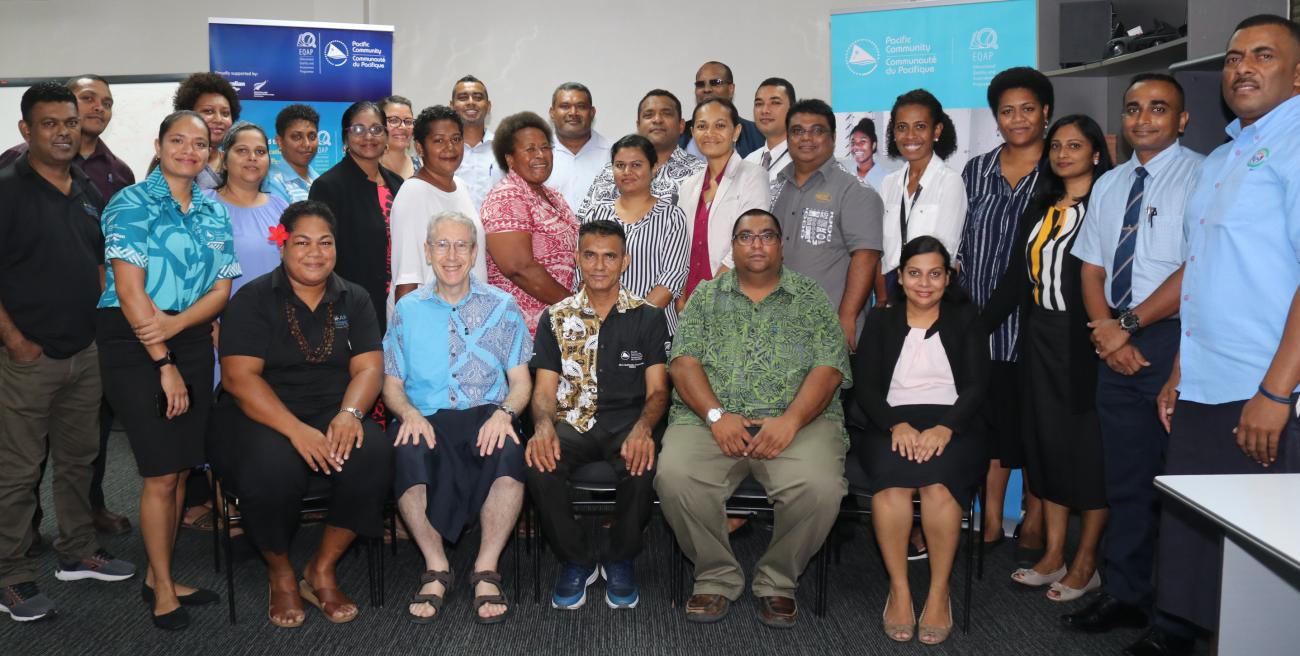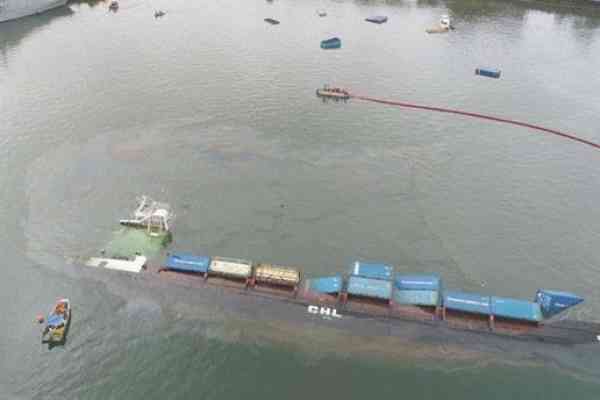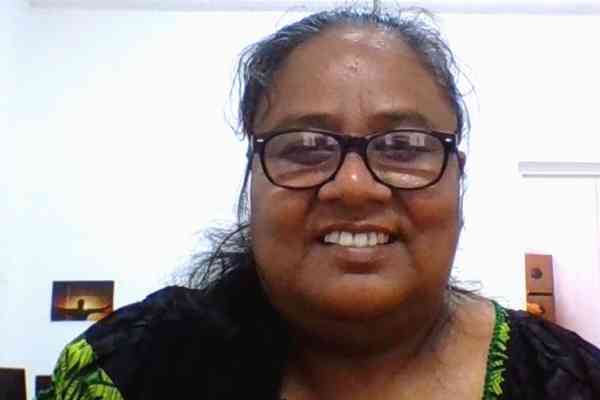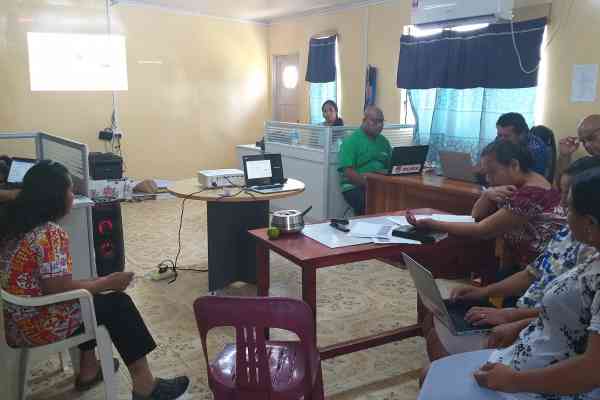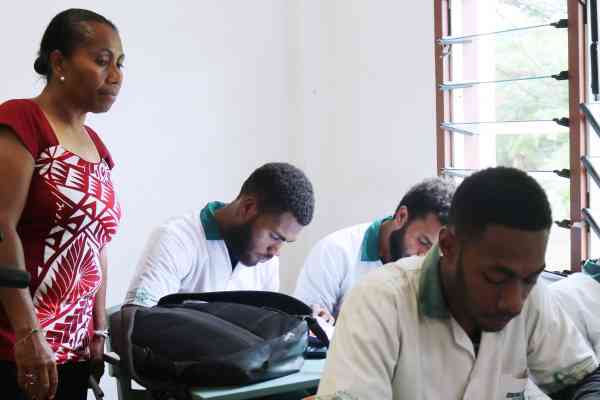A robust internal quality assurance framework is critical to creating and supporting a high standard of student learning and wellbeing in any higher education institution.
This was emphasised to representatives from 17 Fiji technical and vocational education and training (TVET) institutions during a three-day workshop on internal quality assurance frameworks and systems in May. An internal quality assurance framework refers to the processes and procedures within an institution to review, evaluate, assess or check that its systems, services and operations are either at the desired standard, or continuously improving.
“Internal quality assurance is not confined to training and assessment only. It also refers to all activities related to defining, assuring, and enhancing quality,” said the Pacific Community’s Rajendra Prasad to the TVET representatives. He said internal quality assurance applied to the entire operations of a higher education institute and was not confined to its standards of teaching and learning.
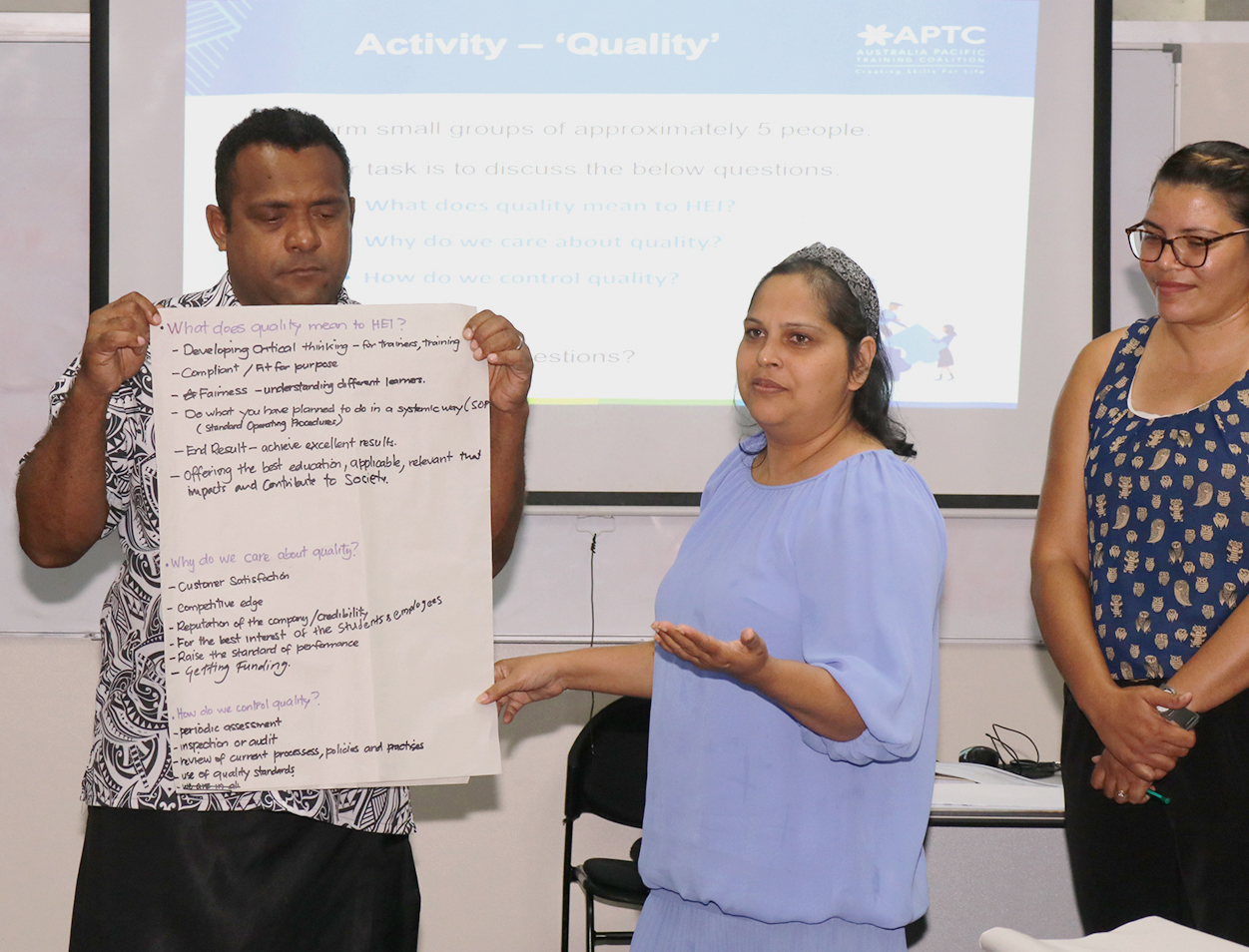 Prasad is the qualifications team leader of SPC’s education programme, the Educational Quality and Assessment Programme (EQAP). SPC organised the training to support Fiji’s quality assurance agency for higher education, the Fiji Higher Education Commission (FHEC). The workshop was specially targeted at smaller providers of higher education.
Prasad is the qualifications team leader of SPC’s education programme, the Educational Quality and Assessment Programme (EQAP). SPC organised the training to support Fiji’s quality assurance agency for higher education, the Fiji Higher Education Commission (FHEC). The workshop was specially targeted at smaller providers of higher education.
The need for a strong internal quality standards framework was emphasised. Prasad encouraged participants to create or improve on their institutions’ framework and to use the FHEC’s guide on quality standards for help. The FHEC guide documents the minimum requirements institutions need to adhere to. A good framework would cover all aspects of the operations, from governance policies, fiscal management processes, programme development and review processes, training delivery and assessment standards, learner support mechanisms, as well as grievance resolution processes.
He offered the resolution process as an example: “From time to time, we see students complaining about higher education institutions,” said Prasad. “That basically means that the framework for resolving grievances is not working well.” This, he said, showed the need for internal quality assurance of the institute’s grievance resolution framework. “A good framework would mean grievances are successfully resolved without being escalated to the FHEC,” he pointed out.
A workshop participant, Ashfaq Khan, said the training was very engaging, and particularly rewarding because everyone genuinely wanted to share their knowledge and learn from each other. Khan, a manager of Keshal’s Business Education Institute, said the workshop helped him to identify gaps in their systems and underlined the need for an efficient documentation process.
Unaisi Waibuta, a senior trainer with the Navuso Agriculture Technical Institute, said the training was immensely helpful and she was eager to return and apply some of the quality control measures discussed.
“I feel the 3-6-9 student tracking (methodology) is important, and I would really like to go back and inculcate that into the teaching and learning system at Navuso,” said Waibuta. The 3-6-9 approach involves checking in with students at three-month intervals to monitor how well they are learning. These regular intervals are to help identify the learning goals that students need more help with.
Mary Balemaira, the development manager for Goodman Fielder Fiji, was similarly grateful for the three-day workshop. Ms Balemaira, whose role includes overseeing the company’s training institute (Crest Academy), said the workshop was a good learning event that expanded her knowledge and her network of quality assurance practitioners.
“One thing that I learnt is that IQA (Internal Quality Assurance) actually helps in ensuring that the internal quality assurance activities are legit, authentic, sufficient, readily available and reliable,” she said. She added that these learnings have helped her to navigate the unique challenge of her role, which requires her to balance the company’s commercial expectations, her students’ interests, and Fiji’s regulatory requirements.
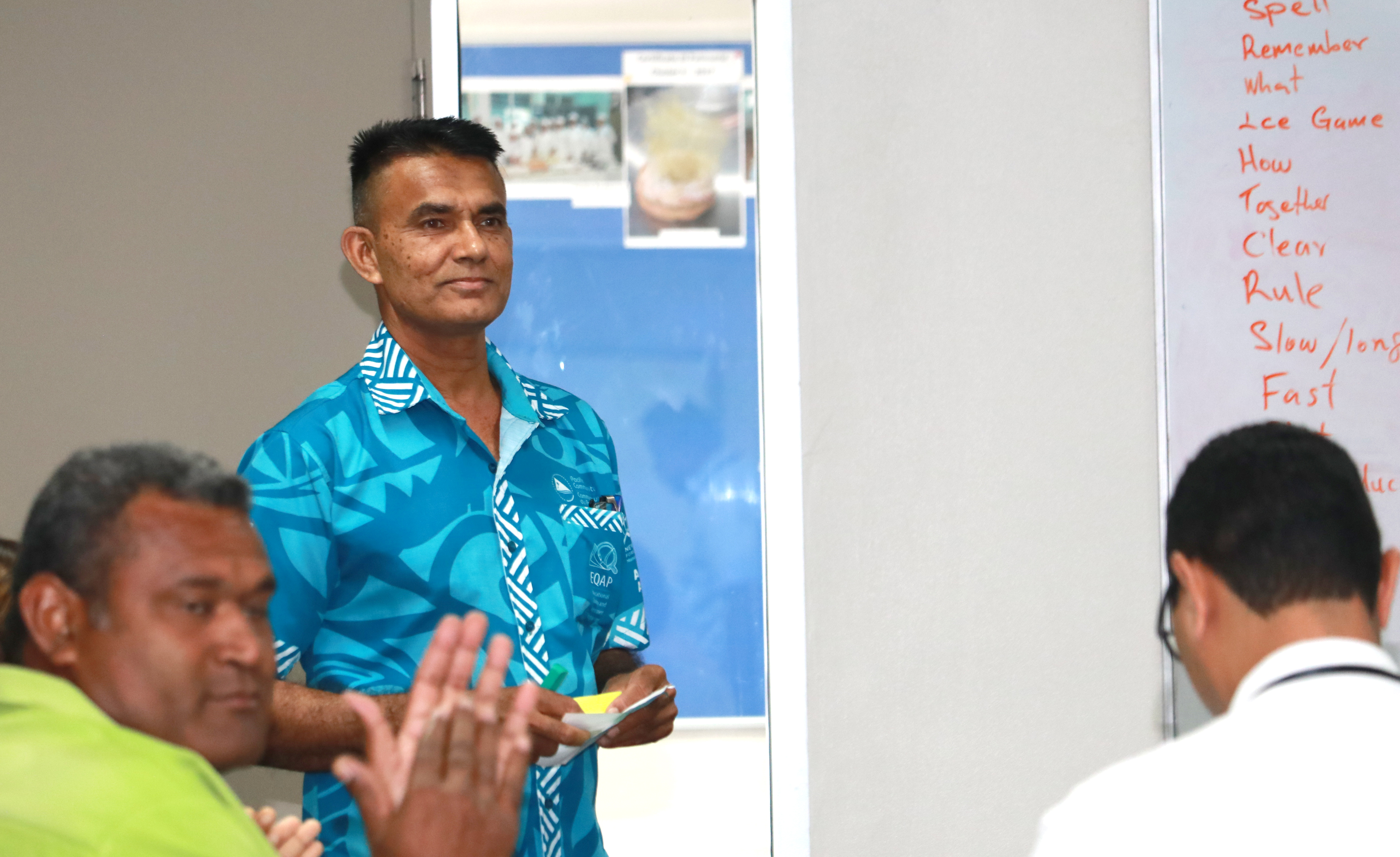 FHEC Director Dr Rohit Kishore, while opening the workshop, said the training was timely because of the need to support TVET institutions to cater for the increasing demand for their trainings. He said these institutions need to be able to review or build their own quality assurance frameworks to ensure their trainings meet Fiji’s quality standards for higher education. Several institutions are already working on building their IQA framework.
FHEC Director Dr Rohit Kishore, while opening the workshop, said the training was timely because of the need to support TVET institutions to cater for the increasing demand for their trainings. He said these institutions need to be able to review or build their own quality assurance frameworks to ensure their trainings meet Fiji’s quality standards for higher education. Several institutions are already working on building their IQA framework.
Prasad has urged representatives to ensure that the learning gained was consistently applied to help their respective institutions.
“If you are not (part of management), take the recommendations back to your management team (and) create that awareness within your institution,” he said. “Be the change agent and not a spectator or commentator on the side.”
Aside from providing internal quality assurance training, SPC’s qualifications team facilitates training in the accreditation, audits, and reviews of higher education institutions. The team also supports the accreditation of training providers, qualifications, and micro-qualifications, the development of regional micro-qualifications, and the establishment of quality assurance agencies.
